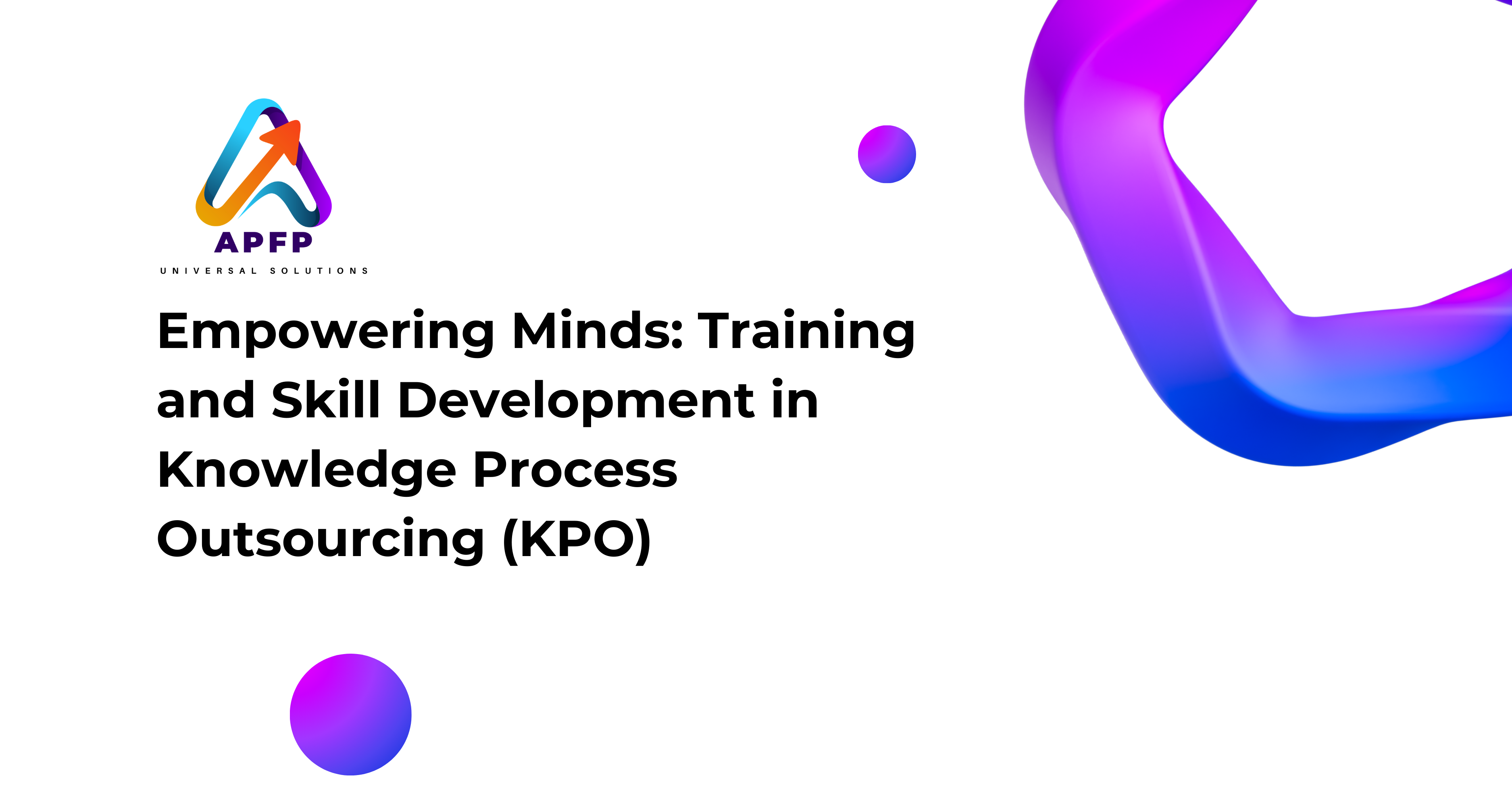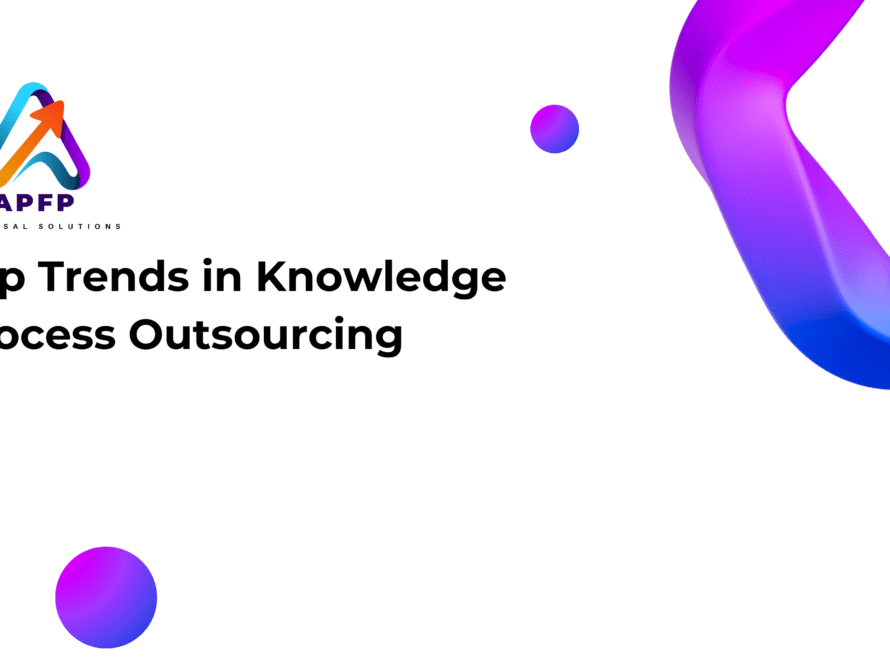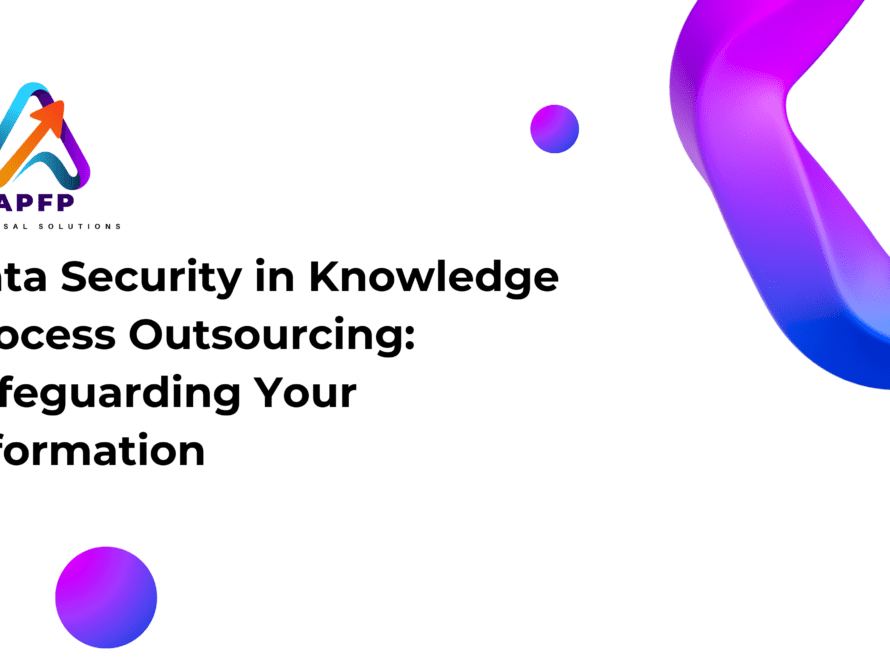In the dynamic realm of Knowledge Process Outsourcing (KPO), where expertise and intellectual capabilities are the bedrock of operations, investing in training and skill development is not just a choice but a strategic imperative. This blog delves into the significance of training and skill development in KPO and explores effective strategies to empower professionals for success in knowledge-intensive processes.
Understanding the Importance of Training in KPO:
- Domain-Specific Knowledge:
- KPO processes often require deep domain expertise. Training programs should focus on enhancing professionals’ understanding of industry-specific concepts, regulations, and trends.
- Process Familiarization:
- Introduce employees to the intricacies of KPO processes. Familiarization with workflows, guidelines, and standard operating procedures (SOPs) is crucial for seamless integration into knowledge-intensive tasks.
- Technological Proficiency:
- As technology plays a pivotal role in KPO, training initiatives should emphasize technological proficiency. This includes training on relevant tools, software, and emerging technologies shaping the KPO landscape.
- Critical Thinking and Analysis:
- KPO professionals need to excel in critical thinking and analysis. Training programs should hone these skills, enabling professionals to approach complex problems with a strategic and analytical mindset.
- Communication Skills:
- Effective communication is key in KPO, especially when collaborating with clients and stakeholders. Training should focus on enhancing verbal and written communication skills to facilitate clear and concise interactions.
Strategies for Effective Training and Skill Development:
- Customized Training Programs:
- Tailor training programs to the specific needs of KPO processes and the industry in which they operate. Customization ensures that professionals acquire the exact skills required for their roles.
- Continuous Learning Culture:
- Foster a culture of continuous learning. Encourage KPO professionals to engage in ongoing skill development, stay updated on industry trends, and embrace a mindset of adaptability to navigate evolving challenges.
- Simulation and Role-Playing Exercises:
- Implement simulation and role-playing exercises to provide practical experience. These exercises simulate real-world scenarios, allowing professionals to apply their knowledge and skills in a controlled environment.
- Mentorship Programs:
- Establish mentorship programs where experienced professionals guide and mentor newer members of the team. Mentorship facilitates knowledge transfer, accelerates learning curves, and promotes a collaborative learning environment.
- Certification Programs:
- Introduce certification programs that validate the expertise of KPO professionals. Certifications not only recognize individual achievements but also contribute to building credibility for the organization in the industry.
- Feedback Mechanisms:
- Implement robust feedback mechanisms. Regular feedback sessions help identify areas for improvement, address challenges, and recognize achievements. Constructive feedback contributes to the ongoing development of skills.
Skill Development for Future Readiness:
- Adaptability and Resilience:
- Emphasize the development of adaptability and resilience. KPO professionals should be equipped to navigate changes in processes, technologies, and industry landscapes with agility and resilience.
- Cross-Functional Skills:
- Encourage the development of cross-functional skills. In addition to specialized domain knowledge, professionals should possess a versatile skill set that enables them to collaborate across different functions within the organization.
- Leadership Training:
- Provide leadership training for individuals in supervisory or managerial roles within KPO teams. Leadership skills are crucial for guiding teams, fostering a positive work culture, and achieving organizational goals.
- Tech-Savvy Mindset:
- Foster a tech-savvy mindset. As technology continues to evolve, KPO professionals should be proactive in staying updated on relevant technologies and embracing innovations that enhance efficiency.
Measuring the Impact of Training:
- Performance Metrics:
- Evaluate the impact of training programs through performance metrics. Track key performance indicators (KPIs) related to productivity, accuracy, and efficiency to assess the effectiveness of skill development initiatives.
- Employee Feedback:
- Solicit feedback from employees regarding training programs. Employee input provides valuable insights into the relevance and effectiveness of training initiatives, helping refine and improve future programs.
- Career Progression:
- Assess career progression as a measure of training impact. Monitor the professional development and career advancement of individuals who have undergone training to gauge the long-term influence of skill development initiatives.
Conclusion: Transformative Training for a Thriving KPO Ecosystem
In the ever-evolving landscape of Knowledge Process Outsourcing, where intellectual prowess is the driving force, transformative training and skill development lay the foundation for success. By investing in customized programs, fostering a culture of continuous learning, and addressing the future readiness of professionals, organizations can empower minds to excel in knowledge-intensive processes. As the KPO ecosystem advances, the commitment to training becomes not just a strategy but a catalyst for organizational growth, innovation, and sustained excellence.




